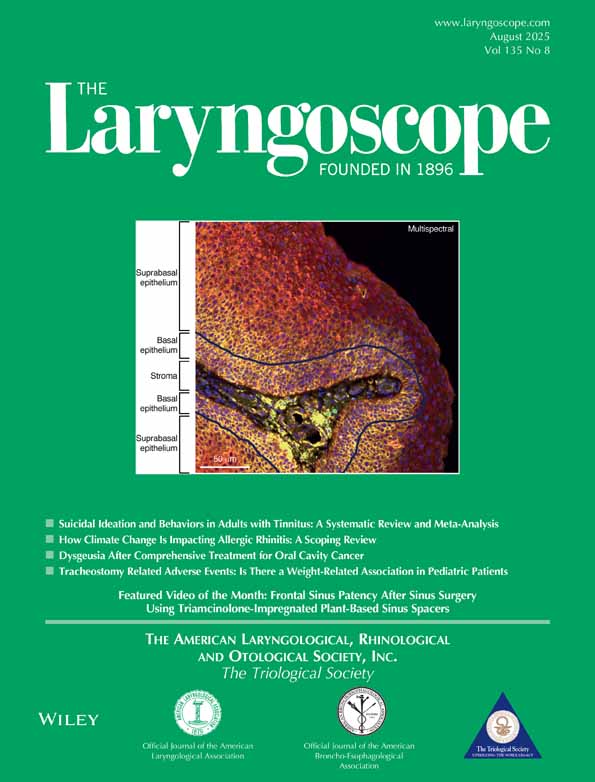Rehabilitation of bilaterally paralyzed canine larynx with implantable stimulator†‡
Presented at the American Laryngological Association 130th Annual Meeting, Phoenix, Arizona, U.S.A., May 28–29, 2009.
This research was performed at Vanderbilt University, Nashville, Tennessee, and was supported by NIH Grants R01-DC001149 and R01-DC008429.
Abstract
Objectives/Hypothesis:
Bilateral stimulation of the posterior cricoarytenoid (PCA) muscles offers a physiologic approach to rehabilitate ventilation to a normal level in case of bilateral laryngeal paralysis. The objective was to evaluate the safety and efficacy of a new generation stimulator in restoring glottal opening, ventilation, and exercise tolerance.
Study Design:
A prospective study in three canines over 6 to 17 months.
Methods:
A Genesis XP stimulator and electrodes were surgically implanted, and the recurrent laryngeal nerves sectioned/repaired bilaterally. In bimonthly sessions, vocal fold movement was measured endoscopically in the anesthetized animal. The movement resulted from PCA stimulation or hypercapnea during spontaneous breathing. Exercise tolerance was measured on a treadmill using pulse oximetry and swallowing function examined by videofluoroscopy.
Results:
During the denervation phase, there was minimal ventilatory compromise and near normal exercise tolerance with the device off (12 minutes, up to 8 mph). PCA stimulation produced only nominal abduction. During the reinnervation phase, synkinetic reinnervation became significant with narrowed passive airway and paradoxical closure of the glottis during hypercapnea. Animals were stridorous and could walk for only 1 to 2 minutes at 4 mph. With the device activated, bilateral PCA stimulation increased glottal area from 50 mm2 to 250 mm2, even during hypercapnea, equaling that of a normally innervated animal. Exercise tolerance was normal. There was no evidence of aspiration during deglutition.
Conclusions:
This study demonstrates that severe ventilatory compromise only occurs following faulty reinnervation of laryngeal muscles. Bilateral PCA stimulation can result in complete rehabilitation of ventilation and exercise tolerance without impairment of swallowing. Laryngoscope, 2009




